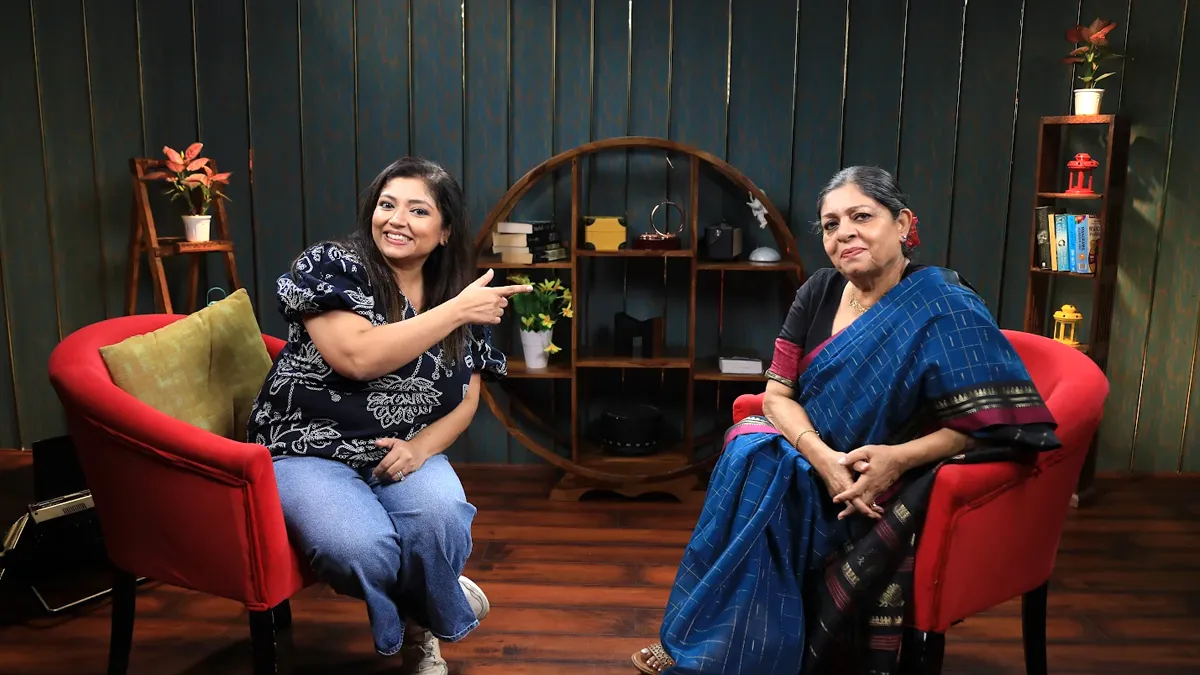
"Call me aunty with respect if you can. But if not, it's your problem." These aren't just words, they're a battle cry from Poonam Muttreja, the 70-year-old Executive Director of the Population Foundation of India, who's spent 45 years dismantling patriarchal systems. In the debut episode of ‘Call Me Aunty’, a groundbreaking series confronting how society labels and limits women, Muttreja doesn't just reclaim the word 'aunty', she transforms it into a symbol of experience, wisdom, and unshakeable pride.
When did 'aunty' become a weapon? Generations of patriarchy have conditioned women to feel embarrassed about their age, whilst simultaneously teaching others to wield the term as an insult. But Muttreja refuses to accept this narrative.
"I am so sad that aunty could even be seen as a bad word," she says, her voice steady with conviction. "This is typical patriarchal, unequal, anti-women attitude. I have no problems being called an aunty. I am an aunty with experience, 45 years of it. And I am 70 now. I am very proud to be 70."
Her message is clear: if the greys in our hair and lines on our faces come with wisdom, experience, and a worldview that patriarchy fears, then why should 'aunty' be shameful? The answer lies not in the word itself, but in a society that devalues women the moment they stop performing youth.
Muttreja reveals a startling truth: women's mental health is crushed by societal norms, yet there's virtually no acknowledgement of it. Gender inequality, she argues, is the sensor for mental wellbeing, or the lack thereof.
According to official National Family Health Survey data, one in ten women experience lack of freedom to even attend a health checkup, requiring permission from in-laws, parents, or husbands who then decide whether medical attention is necessary.
The biological ability to bear children—which should be celebrated, instead becomes another weapon against women. Early marriage, lack of autonomy over family planning, overwork, and constant anxiety about children's needs all compound to impact women's physical health first, then their mental wellbeing.
Perinatal anxiety, postnatal depression, women's mental health is entirely crushed by societal norms, yet the acknowledgement remains absent.
Muttreja addresses the irony head-on: when fertility rates were high, women were cursed for having too many children. Now, as rates decline globally, world leaders like Vladimir Putin are demanding women stop working and have more than eight children as their 'national duty'.
Women's aspirations are changing, young girls now aspire to study, work, gain skills, and achieve economic independence. And when governments attempt to control their reproductive choices? Women are responding with a resounding 'no', refusing to be treated like buttons that switch on and off at society's convenience.
The rise of 'DINKS', double income, no kids, couples celebrates child-free living, yet the hatred and judgment disproportionately targets women, who are perceived as failing their basic duty of reproduction.
Muttreja champions autonomy: "No child should be an unwanted child. An unplanned, unwanted, or forced pregnancy pushes women into states of anxiety, pressure, and depression."
Whilst respecting women who choose to be homemakers, Muttreja warns against the 'trad wife' trend, a glorification of traditional gender roles that perpetuates inequality through a convoluted reinvention of patriarchal norms.
"Let's smash it before it becomes an epidemic," she urges, drawing parallels between this social media trend and decades of Indian television serials that reduced women to scheming kitchen-dwellers or unfaithful career women.
Don't Miss: Who Is María Corina Machado? Venezuelan Leader Wins The 2025 Nobel Peace Prize
When people say, "She's so wonderful, looks after her house beautifully, and she takes care of her children even though she is a feminist," Muttreja recognises the backlash for what it is: society's fear of independent women.
She references European research of 50,000 interviews revealing that men "abhor powerful women"—a word she's never forgotten, highlighting how deeply social norms are loaded against female strength.
Evidence from the World Bank and McKinsey proves that women's workforce participation drives economic growth, whilst having women on boards improves functioning and increases profits. Yet society continues to bury its head in the sand.
Muttreja's prescription is simple but powerful: "It is in the interest of men, women, and society to not only accept working towards equality and abandoning inequality, because it also leads to happiness."
‘Call Me Aunty’ isn't just a conversation, it's a movement. And if generations of patriarchy taught us to be embarrassed by our age, then perhaps it's time we taught the next generation something different: that 'aunty' is a woman who's survived, thrived, and refuses to apologise for either.
Don't Miss: Jemimah Rodrigues Turned Trolling Into Fuel and Took India to the World Cup Final
Keep reading Herzindagi for more such stories.
Our aim is to provide accurate, safe and expert verified information through our articles and social media handles. The remedies, advice and tips mentioned here are for general information only. Please consult your expert before trying any kind of health, beauty, life hacks or astrology related tips. For any feedback or complaint, contact us at [email protected].